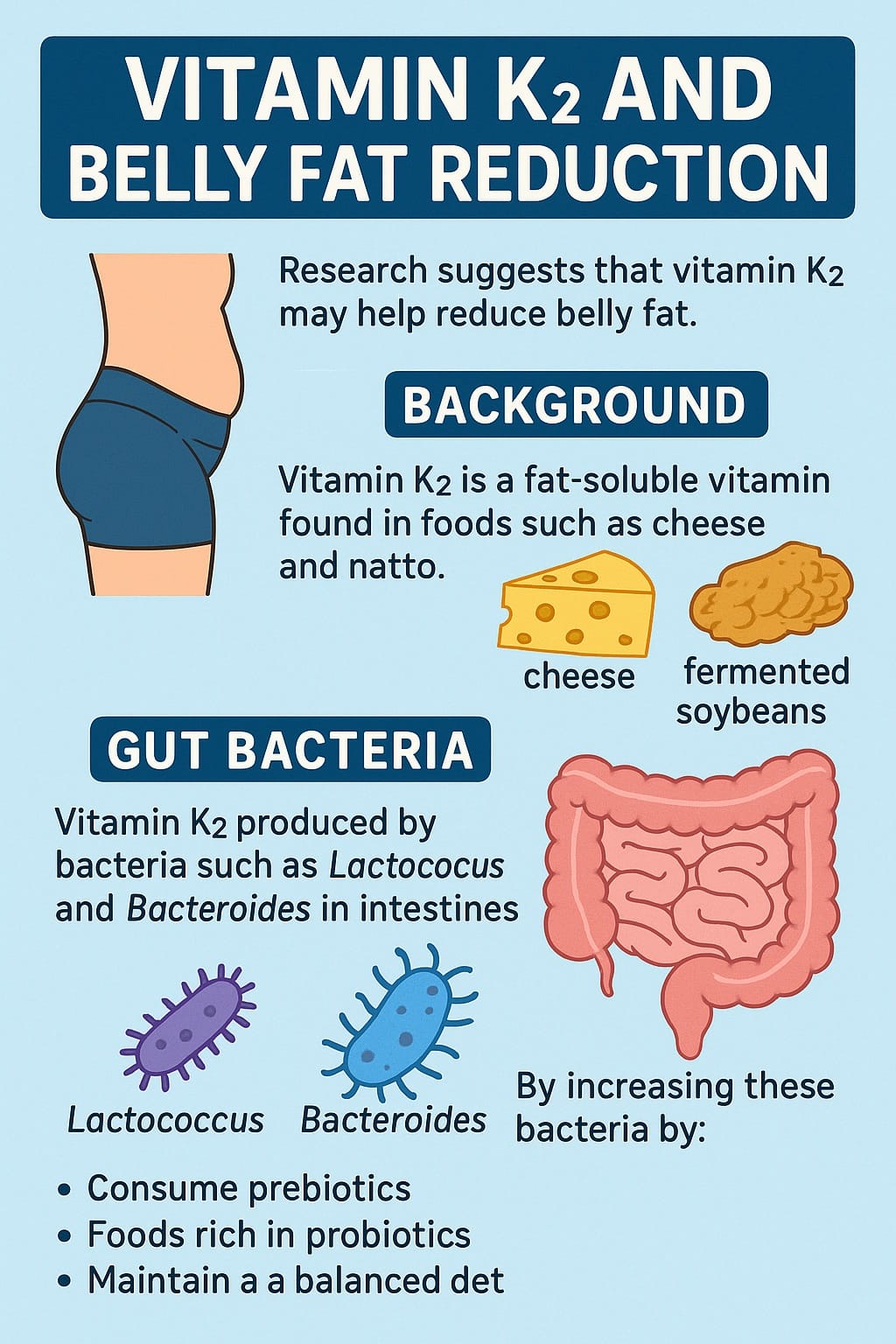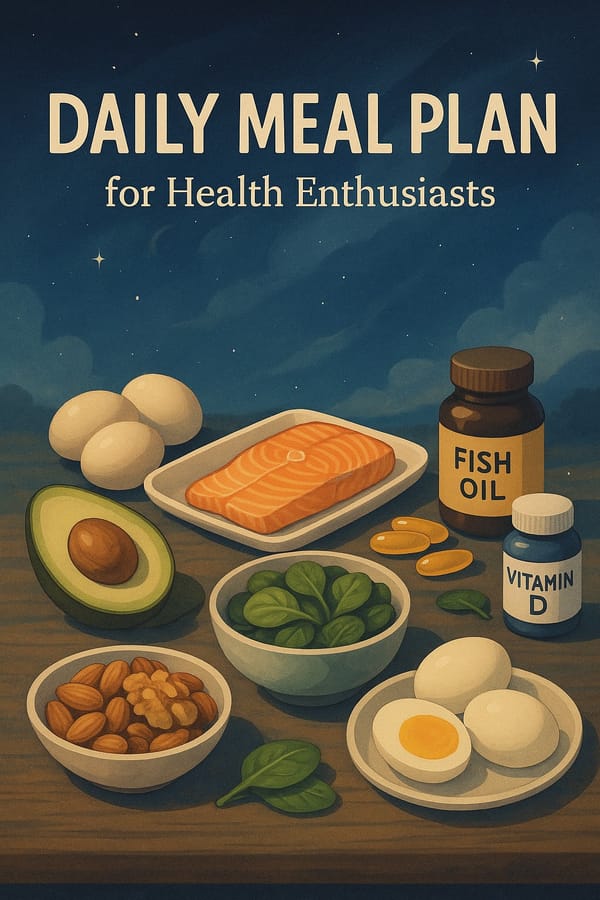Vitamin K2 and Visceral Fat Reduction: The Gut-Health Connection
Visceral fat is not just a cosmetic concern—it significantly increases the risk of heart disease, type 2 diabetes, and other metabolic disorders.

Recent research is shining a spotlight on the role of vitamin K2, long known for its importance in bone health and blood clotting, in fat metabolism. Evidence suggests that K2 may help reduce visceral fat, and this effect is closely tied to the gut microbiome.
Background on Vitamin K2 Vitamin K2 is a fat-soluble vitamin in the vitamin K family, which includes:
- Vitamin K1 (Phylloquinone): Found mainly in green leafy vegetables; plays a primary role in blood clotting.
- Vitamin K2 (Menaquinones): Found in fermented foods, produced by gut bacteria, and present in several forms such as MK-4, MK-7, MK-9.
Sources of Vitamin K2
- From Food – Present in fermented cheeses, certain meats, egg yolks, and fermented products like natto (fermented soybeans).
- From Gut Bacteria – Certain intestinal microbes such as Bacteroides, Eubacterium, and Lactococcus can synthesize K2. Increasing these beneficial bacteria can be achieved by consuming foods rich in prebiotics (e.g., garlic, onions, unripe bananas, asparagus), incorporating probiotic-rich fermented foods (e.g., natto, kimchi, yogurt, kefir), avoiding unnecessary antibiotic use, and maintaining a fiber-rich, balanced diet.

Vitamin K2 and Fat Metabolism Recent studies suggest that vitamin K2 may:
- Enhance mitochondrial function, leading to more efficient energy burning.
- Regulate hormones such as insulin and leptin, which influence appetite and fat storage.
- Reduce chronic inflammation, a key factor in visceral fat accumulation.
The Role of Gut Bacteria Gut microbes play a vital role in both the production and absorption of vitamin K2:
- A balanced microbiome can help produce adequate amounts of K2.
- Certain bacteria, like Lactococcus lactis and Bacillus subtilis (found in natto), produce MK-7, a highly bioavailable form that stays in the body longer.
- Dysbiosis, or microbial imbalance, can reduce K2 production and increase the risk of visceral fat buildup.
Research Evidence
- Animal studies have shown that K2 supplementation can boost fat metabolism and reduce inflammation in adipose tissue.
- Human studies indicate that higher K2 intake is associated with smaller waist circumference and lower levels of visceral fat.
- Researchers suspect that K2 may stimulate osteocalcin, a protein that influences energy usage and fat metabolism.
Recommended Foods to Boost K2 and Gut Health
- Natto (very high in MK-7)
- Fermented cheeses such as Gouda and Brie
- Egg yolks
- Grass-fed meats
- Prebiotic and probiotic foods to support gut bacteria that produce K2
Precautions
- Individuals taking anticoagulants (e.g., warfarin) should consult their healthcare provider before supplementing with K2.
- It’s best to obtain K2 from a combination of food sources and gut microbiome support rather than relying solely on supplements.
Conclusion Vitamin K2 plays a role far beyond bone and cardiovascular health—it may also be a key player in reducing visceral fat by influencing energy metabolism, hormone regulation, and gut microbiome balance. Ensuring sufficient K2 intake from both diet and a healthy gut environment could be an important strategy for reducing belly fat and promoting long-term health.



